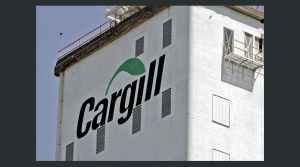


(Posted on 08/01/20)
Cargill has reported results for the fiscal 2020 second quarter ended Nov. 30, 2019.
“We saw very good execution from our global teams throughout the quarter, as they focused on delivering what matters for our customers,” said Dave MacLennan, Cargill’s chairman and chief executive officer. “Our ongoing transformation, as well as recent acquisitions and expanded capabilities, are all helping us continue to raise our performance.”
Key measures include:
Adjusted operating earnings were $1.02 billion, up 19% from $853 million last year. For the first half of the year, this brought adjusted earnings to $1.93 billion.
Net earnings on a U.S. GAAP basis for the quarter were $1.19 billion, up 61% from a year ago. The increase included gains from divesting Cargill’s malt business and financial subsidiary, CarVal Investors. Net earnings for the first half climbed 20% to $2.11 billion.
Second-quarter revenues rose 4% to $29.2 billion. Six-month revenues totaled $58.2 billion, a 3% rise.
Adjusted operating earnings increased in two of Cargill’s four business segments: Animal Nutrition & Protein, and Industrial & Financial Services. They declined in Origination & Processing and Food Ingredients & Applications. Notable results include:
Cargill’s protein businesses around the world were well prepared to meet opportunities from country-by-country changes in demand, shifts in global protein flows due to African swine fever and other market forces.
Transformation efforts, recent acquisitions and capital investments all had positive impacts in businesses like animal nutrition and global poultry. Likewise, the ocean transportation business benefited from its readiness for the upcoming industry shift to low-sulphur fuels that began on Jan. 1, 2020.
The company’s agricultural trading business stayed well-positioned across commodities, while some of the regional origination and processing businesses continued to feel the negative impact of trade uncertainty and weather disruptions, particularly in North America.
Several global product lines of food ingredients saw softer results, including starches and sweeteners in Europe and Brazil, and edible oils in South America. Strong product deliveries kept cocoa and chocolate results near even with last year.
The beneficial impact of wintry weather combined with production efficiency gave a boost to road safety salt results.
Cargill and joint venture partner Royal DSM began commercial-scale production of EverSweet stevia sweetener in November at Cargill’s $50 million fermentation facility in Blair, Nebraska – the first of its kind in the U.S. This zero-calorie sweetener uses fermentation to create the two best-tasting molecules in the stevia leaf. In addition to providing scale, fermentation is much more sustainable than traditional leaf-based production, since these molecules make up less than 1% of the stevia leaf in nature.
ADM and Mitsubishi Corporation have signed a non-binding memorandum of understanding to form a strategic... Read more
ESL Shipping and global steel manufacturer SSAB have agreed on a multi-year extension of the agreement... Read more
Anglo American’s Sakatti copper and polymetallic project in Finland has been designated as a &... Read more
FEFAC, representing the EU compound feed and premix manufacturers, noted with deep concern the announced... Read more
Catering to the growing demand from India’s confectionery, infant formula, and dairy sectors,... Read more
Khalifa Economic Zones Abu Dhabi – KEZAD Group, the largest operator of integrated and purpose... Read more
Rio Tinto will invest $1.8 billion1 to develop the Brockman Syncline 1 mine project (BS1), extending... Read more
Catherine Cobden, President and CEO of the Canadian Steel Producers Association (CSPA), has released... Read more
Enough domestic ferrous scrap is available for electric arc furnace (EAF) steelmakers to supply nearly... Read more
Cargill’s Ocean Transportation business and leading tanker shipping company, Hafnia, have joined... Read more